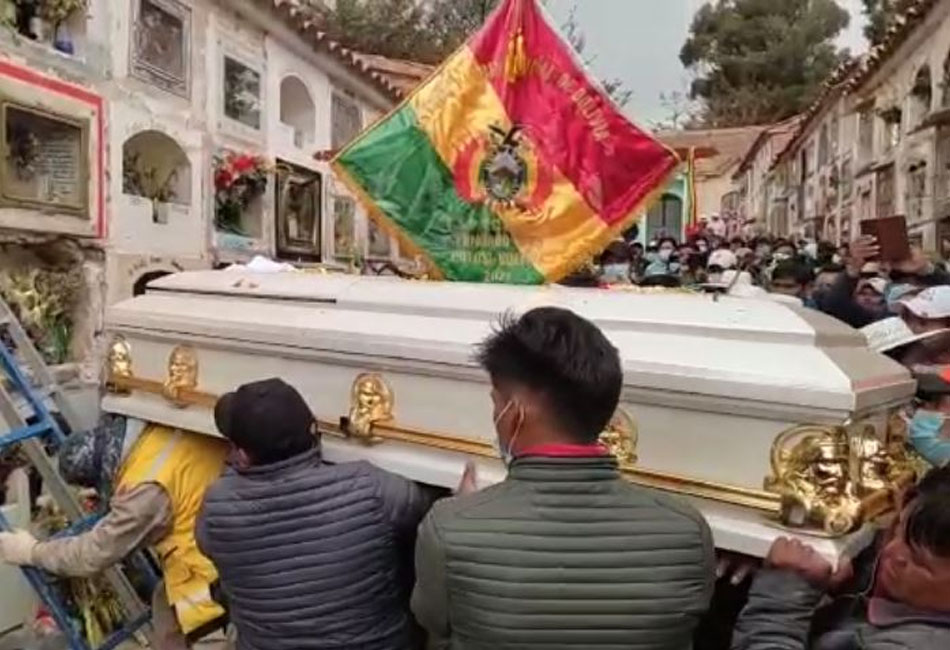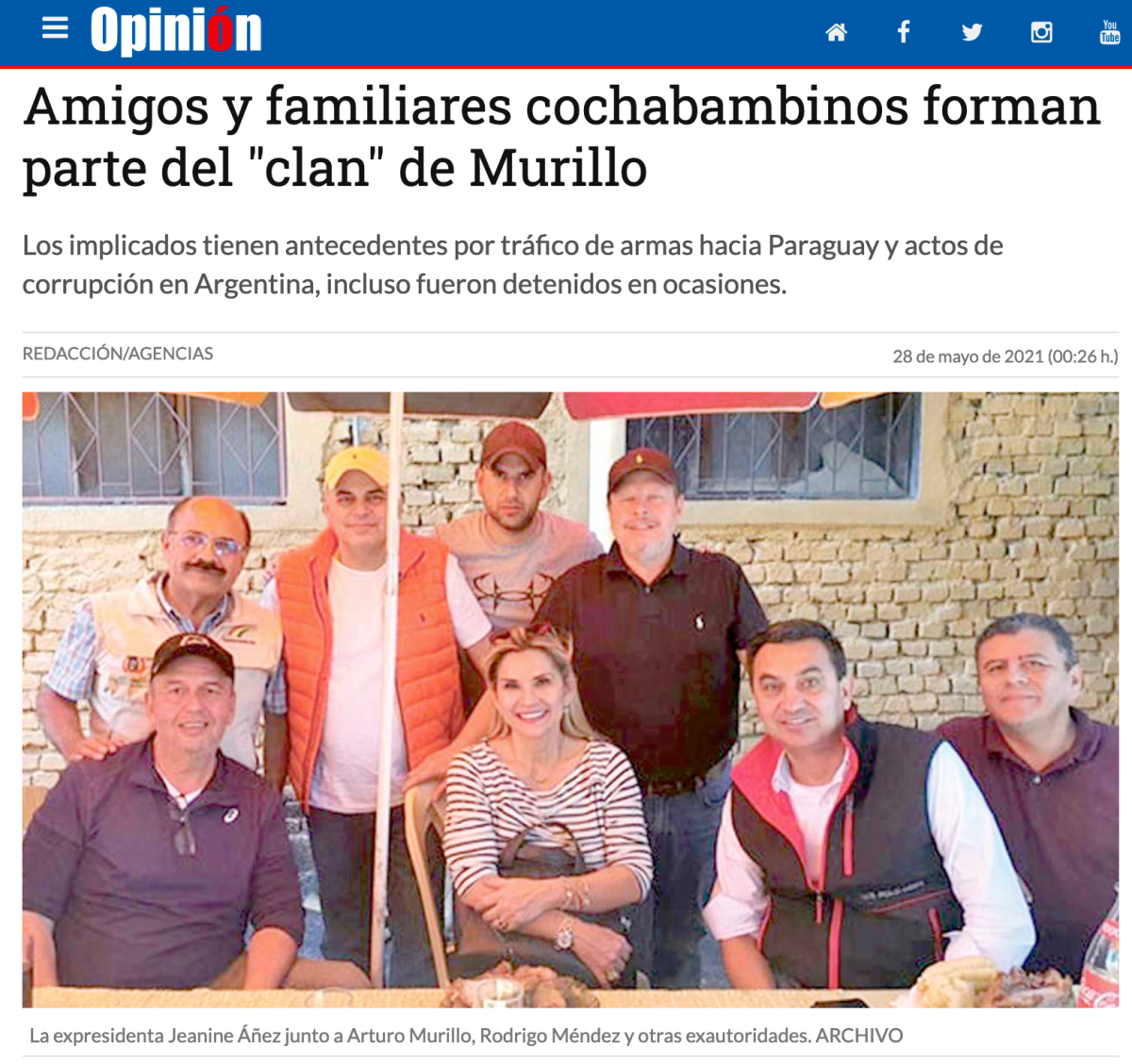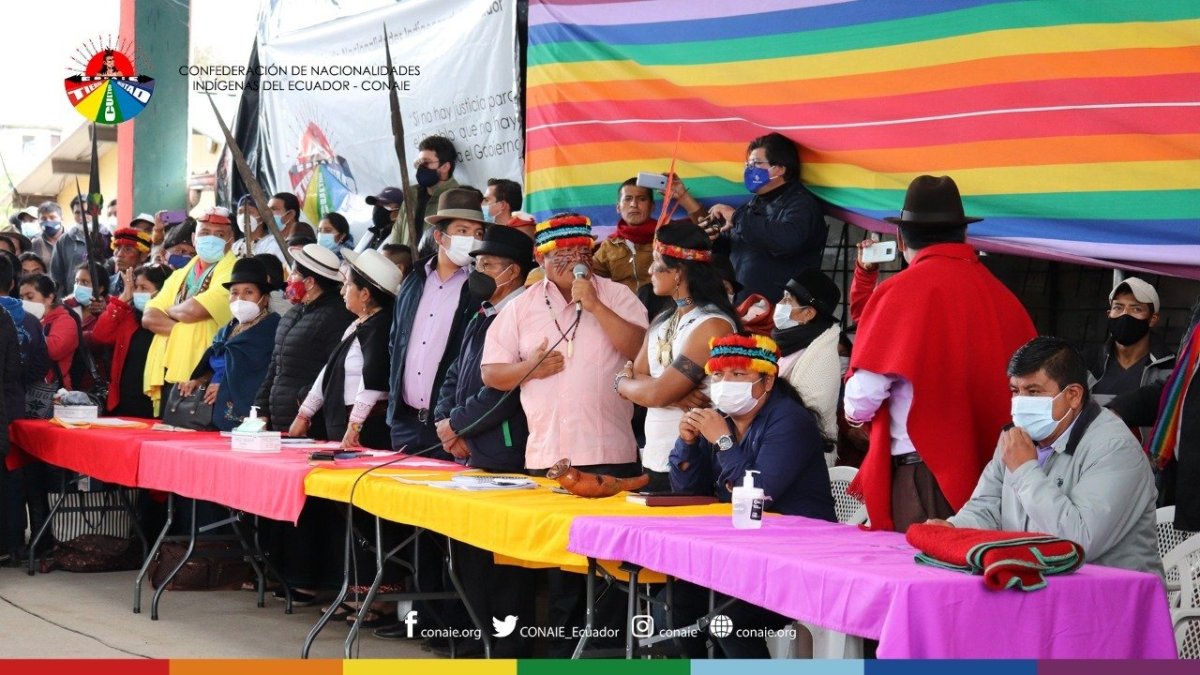A new Bolivia is under construction.
Follow events there.

Fifteen Bolivians were killed in social movement conflicts in 2022
Violent death cast a shadow over multiple social movements in Bolivia during the third calendar year of President Luis Arce. Deliberate killings came in clashes over land, mining, and the planned census, claiming eight lives, while tear gas detonated in a student meeting led to a stampede in which five were killed. A government bureaucrat…

Arrest of Luis Fernando Camacho prompts fiery new Santa Cruz protest wave
Luis Fernando Camacho, governor of Santa Cruz department and regional leader in 2019 protests against Evo Morales, was arrested on December 28, 2022, as a suspect in the Golpe de Estado I (Coup d’état I) investigation. Camacho, whose public statements suggest that he and his father coordinated with the military and police prior to Evo…

Introducing Ultimate Consequences: A digital archive on lethal conflict in Bolivia, 1982–present (video)
This presentation introduces Ultimate Consequences, a quantitative and qualitative database, unique in its depth and completeness of coverage, of all conflict deaths in Bolivia since October 1982, a period of largely elected governments and political dynamism. The country’s 1977–82 return to democracy, 1985 general strikes, 2000–2005 antineoliberal protest wave, and its political crises in 2006–2008…

The death of Bolivian mining leader Orlando Gutiérrez was accidental, investigators conclude.
The death of Bolivian mining leader Orlando Gutiérrez Luna remained a matter of dispute for a full year after his untimely death in October 2020, shortly after the electoral victory of Luis Arce and David Choquehuanca. While estranged from the inner circle of Evo Morales, Gutiérrez headed the pivotal miner’s union, Federación Sindical de Trabajadores…

Four deaths surrounded Bolivian political mobilizations in 2021. Responsibility for two remains in dispute.
Four Bolivians died in or around social movement conflicts in 2021. These were the first deaths since the deadly political crisis of 2019, when political violence claimed 38 lives, 29 or 30 of them killed by the security forces after the ouster of Evo Morales. In the year that followed, Bolivian politics centered on a…

“If you enter the city, I will hunt you.”: Sacaba massacre was preceded by open threat of military violence
On November 13, 2019—one after Jeanine Áñez was sworn as interim president of Bolivia—the highest police authority and highest-ranking peasant union leader of Cochabamba met in the Integral Police Station (EPI) of Huayllani, the neighborhood that would see the country’s deadliest massacre in sixteen years just two days later. The Cochabamba peasant federation (Federación Sindical…

One dead as urban opposition battles pro-MAS campesinos in Potosí
Young pro-MAS protester Basilio Titi Tipolo has been identified as the first fatal casualty in renewed partisan confrontations in Bolivia. Titi died amid the yesterday’s most intense street clashes, in the city of Potosí, where the Potosí Civic Committee (Comcipo) was leading the second day of a nationwide strike. In Potosí, as in several other…

Tick-tock coverage of the overthrow of Evo Morales: What we know now
A flood of new declarations from politicians and official involved in the 2019 ouster of Evo Morales have come out. These declarations have accelerated because the matter is now the subject of a criminal investigation that led to the arrest of Jeanine Áñez. This post revises and updates my January 2020 coverage of accounts of…
![Note from the field: Bolivia redefines its history [2010]](https://woborders.files.wordpress.com/2021/06/honorary-session.jpeg?w=1200)
Note from the field: Bolivia redefines its history [2010]
I’m reposting this fieldwork newsletter account that I wrote in 2010 because it feels relevant to current conversations about narrating American history. Imagine for a moment the following scenario: There’s a formal diplomatic function between the United States and France, in which the visiting French president is honoring a hero of the Franco-American effort during…

Arturo Murillo began corruption scheme in first week of Áñez regime
On May 21 and 22, the United States government arrested Arturo Carlos Murillo Prijic, the former minister of government under the interim government of Jeanine Áñez, his chief of staff Sergio Rodrigo Mendez Mendizabal, and three of Murillo’s long-time associates. These include Murillo’s childhood friend Luis Berkman Littman, his son Bryan Samuel Berkman, and Argentine…

Parallels in Ecuador, Bolivia elections highlight growing role for independent and Indigenous politicians
Today’s New York Times is highlighting (with a quote from me) the growing number of Indigenous politicians and parties (en castellaño) claiming space in Andean politics. Different individuals and collectives are making the case for indigenous autonomy, post-extractivist economic models, accountability to the grassroots, and internal democracy (vs. centralized hyper-partisanship). In Ecuador and Bolivia, this…

Spatialities of Andean Extractivism (video/talk at AAG 2021)
As part of an extended panel on the Corporation on at the American Association of Geographers meeting, I presented the following talk on Concession blocks, spiraling pits, and wily start-ups: Spatialities of Andean extractivism (AAG members only). The talk is a deep dive in the technologies and policies that connect open-pit mining w/ speculative capital,…
Loading…
Something went wrong. Please refresh the page and/or try again.
About the blogger
Carwil Bjork-James is an ethnographer, photographer, writer, and participant in creative mass movements. He is assistant professor of anthropology at Vanderbilt University. (The views expressed here are his own, not those of the university.)

